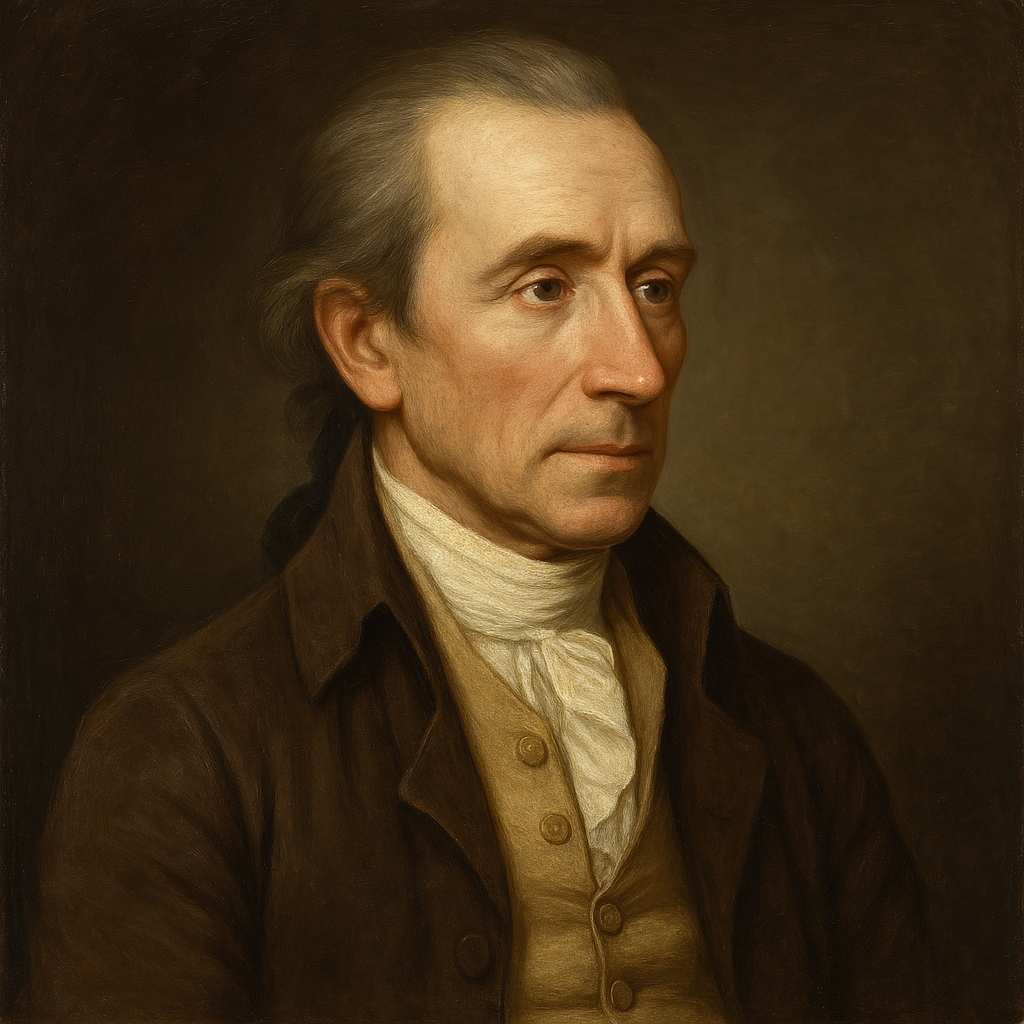1 Poems by Philip Freneau
1752 - 1832
Philip Freneau Biography
Philip Morin Freneau, often celebrated as the "Poet of the American Revolution," emerged as one of the most significant literary figures in early American history. Born on January 2, 1752, in New York City to Huguenot parents, Freneau's life would span the tumultuous period of American independence and the early republic, during which he would earn his reputation not only as a poet but also as a fierce journalist and political writer.
Freneau's early education at Penolopen Latin School in Monmouth County, New Jersey, laid the foundation for his literary career. In 1771, he enrolled at Princeton University (then the College of New Jersey), where he formed crucial friendships with future political leaders James Madison and Hugh Henry Brackenridge. During his college years, Freneau's poetic talents began to flourish, and he collaborated with Brackenridge on a commencement poem titled "The Rising Glory of America," which presaged themes that would dominate his later work.
The revolutionary period proved transformative for Freneau's writing. Unlike many of his contemporaries who wrote in the neoclassical style popular in England, Freneau developed a distinctly American voice, incorporating native landscapes, indigenous peoples, and revolutionary ideals into his verse. His time at sea as a merchant marine and his later capture by the British in 1780 provided rich material for some of his most powerful works, including "The British Prison Ship" (1781), which detailed the horrific conditions aboard the prison ships in New York harbor.
Freneau's political activism found expression through both his poetry and his journalism. As editor of the National Gazette, which he established in Philadelphia in 1791 with the support of Thomas Jefferson, he became one of the most influential voices of the Democratic-Republican party, engaging in fierce political debates with Federalist opponents. His satirical verses and editorial writings earned him the enmity of Federalists, particularly Alexander Hamilton, who accused him of being Jefferson's "hired pen."
The poet's relationship with nature and his environmental sensibilities set him apart from his contemporaries. Works such as "The Wild Honey Suckle" (1786) demonstrate a romantic appreciation for American flora that predates the American Romantic movement by several decades. His careful observation of natural phenomena and his ability to imbue them with symbolic significance mark him as a precursor to the transcendentalists who would follow.
Freneau's literary output was remarkably diverse, encompassing political satire, nature poetry, sea narratives, and philosophical meditations. His collection "Poems Written Between the Years 1768 & 1794" showcases this range and remains a crucial document of early American literature. The volume includes works like "The Indian Burying Ground," which demonstrates his unique ability to blend cultural criticism with poetic meditation, questioning European American assumptions about Native American customs and beliefs.
Despite his significance to American letters, Freneau's later years were marked by financial hardship and declining recognition. He retired to his family farm in Mount Pleasant, New Jersey, where he continued to write while struggling to make a living through farming and occasional journalism. His death in 1832, during a snowstorm while returning home from the village post office, seemed to mirror the stark realities he often portrayed in his verse.
Freneau's influence on American literature extends far beyond his immediate historical moment. His experiments with free verse and his attention to distinctly American themes helped establish a national literary tradition separate from European models. His political writings, which combined journalistic prose with satirical verse, established a precedent for the role of the writer as public intellectual in American society.
Modern scholarship has increasingly recognized Freneau's contributions to environmental literature and his sophisticated treatment of Native American themes. His poems about nature reveal an ecological consciousness that seems remarkably contemporary, while his sympathetic (though still limited by his time) portrayals of indigenous peoples challenge the dominant narratives of his era.
Freneau's legacy lies not only in his individual works but in his role as a cultural pioneer who helped establish an independent American literary voice. His career demonstrates the complex relationship between politics and art in the early republic, and his work continues to offer insights into the formation of American cultural identity. As both a literary artist and a political activist, Freneau embodied the challenges and opportunities faced by intellectual figures in a revolutionary age, making his life and work an essential study for understanding the development of American literature and thought.
This text was generated by AI and is for reference only. Learn more
Username Information
No username is open
Unique usernames are free to use, but donations are always appreciated.
Quick Links
© 2024-2025 R.I.Chalmers (V2Melody).

All music on this site by R.I.Chalmers (V2Melody) is licensed under a Creative Commons Attribution-NonCommercial 4.0 International License.
Attribution Requirement:
When using this music, you must give appropriate credit by including the following statement (or equivalent) wherever the music is used or credited:
"Music by R.I.Chalmers (V2Melody) – https://v2melody.com"
Support My Work:
If you enjoy this music and would like to support future creations, donations are always welcome but never required.
Donate


